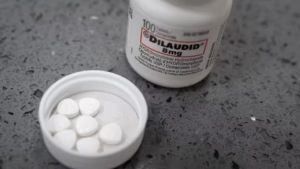
PPO vs. HMO for Addiction Treatment
When it comes to addiction coverage in 2025, one of the biggest questions people face is: Should I use a PPO or an HMO plan? Both types of insurance cover addiction treatment, but they work differently—and those differences can shape your recovery options.
- PPO (Preferred Provider Organization) plans are known for flexibility. You don’t need a referral to see a specialist, and you can usually access out-of-network treatment (though at a higher cost). For someone seeking a specific rehab program or out-of-state care, PPOs often provide more freedom.
- HMO (Health Maintenance Organization) plans are typically more affordable but come with restrictions. You’ll usually need to choose from in-network providers and may require referrals to access specialized care. For those who want to keep costs predictable and don’t mind staying local, an HMO can work well.
In 2025, both PPO and HMO plans comply with the Mental Health Parity and Addiction Equity Act, meaning insurance companies must cover addiction treatment at levels comparable to physical health services. The key difference isn’t whether you’re covered—it’s how you can access that coverage.
PPO Coverage – Flexibility and Freedom in Treatment
If you value options, a PPO may feel like a safety net. For example, you find a treatment center that specializes in trauma-informed care for addiction across state lines. With a PPO, you’re more likely to get partial coverage, even out-of-network.
Benefits of PPOs for addiction coverage include:
- Freedom to choose from a wide range of providers.
- No referral needed to see specialists.
- Partial reimbursement for out-of-network care.
The trade-off is cost: PPO premiums are typically higher, and out-of-network deductibles can add up. Still, many families find the flexibility worth it.
“Addiction recovery is not one-size-fits-all. PPOs give people the chance to find the right fit, even if it’s not next door.”
Nearly 47% of Americans with private coverage are enrolled in PPO plans, using that flexibility for specialized addiction programs.
HMO Coverage – Cost-Effective and Coordinated Care
HMOs are for people seeking clear, straightforward coverage without financial surprises. With lower premiums and copays, they can make addiction treatment more accessible.
Benefits of HMOs for addiction coverage include:
- Lower monthly premiums and out-of-pocket costs.
- Coordinated care within a defined network of providers.
- Predictability in billing and treatment options.
The main challenge is limited choice: you usually must stick with in-network facilities, and specialized programs outside the network may not be covered. However, this structure works well if a high-quality treatment center is nearby.
Over 35% of insured Americans prefer HMOs for cost savings. For addiction recovery, this can reduce financial stress while focusing on healing.
PPOs are like an open highway, while HMOs are more like a guided route—you get where you need to go, just with fewer detours.
Recap, Key Takeaways, and Expert Thoughts
- PPOs offer flexibility in choosing treatment centers, including out-of-network options, but come with higher costs.
- HMOs are more affordable and coordinated but limit you to in-network providers.
- Both must legally cover addiction treatment under parity laws, so you’re protected either way.
Expert Takeaway:
The “best” option depends on your personal situation. PPOs suit those needing specialized care outside their area. HMOs provide solid coverage for affordability and simplicity.
Reviewer’s Note:
Having worked with families navigating insurance for addiction treatment, the best coverage is the one that gets you started. Don’t let acronyms and plan types keep you from seeking help. Whether PPO or HMO, the priority is taking the first step toward recovery.



 Reviewed by:
Reviewed by:  Written by:
Written by: 




 FindTreatment.gov
FindTreatment.gov